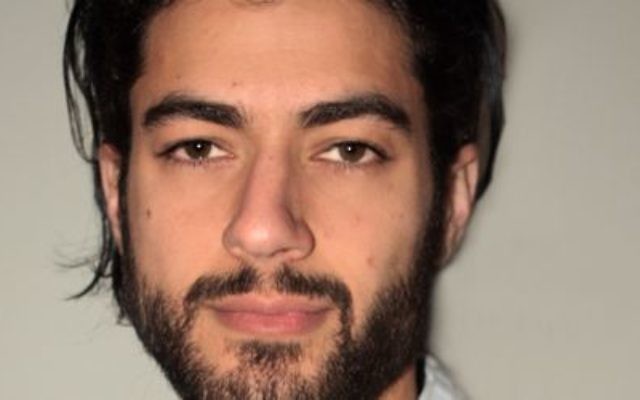Exploring Shoah pain through poetry
AS a young boy, Anthony Levin grew up listening to his grandparents’ harrowing stories of survival in the Nazi death camps.
AS a young boy, Anthony Levin grew up listening to his grandparents’ harrowing stories of survival in the Nazi death camps.
Among the stories was the saga of his grandmother, Olga Horak, now a guide with the Sydney Jewish Museum, who survived Auschwitz.
“My sister and I used to laugh that we spent most weekends listening to stories of murder, near death or escape, and watching countless Holocaust documentaries, as if on loop,” recalled Levin.
“I only realised recently that my nascent and raw familiarity with horror wasn’t normal, although it was completely normalised for me.”
But Levin never recoiled from the stories. In fact, the 29-year-old trained lawyer was inclined to do the exact opposite, digging further into his own feelings of grief and loss – through the medium of poetry.
The result led him to publish his first volume of poetry, House of the Collective Unconscious, which deals with intergenerational trauma and the conscious and unconscious effects of living close to survivors.
This week the Cranbrook School graduate, who is currently completing a master’s degree in contemporary literature and culture at the University of Leeds in the UK, will be back in Sydney to launch the volume at Berkelouw Books in Paddington on January 6 at 7pm.
“This is my archaeology,” Levin told The AJN. “As I go deeper, I can only hope, in my own way, to restore the faces of the lost, to reanimate the ghostly images of my inheritance, and to give that inheritance a voice.”
Interestingly, Levin had not intended to write such a collection at the outset. “If it’s a poet’s prerogative to sound mystical, then I’d have to say that much of the work came from somewhere else. Sometimes I’d be walking through a Holocaust museum – in the UK, in the US – and a poem would arrive almost fully formed. I look back at some of the work and I’m not really sure how I wrote it.”
However, Levin said the work also forms part of a broader mission. “[I want] to begin to bridge the spaces between local histories of suffering, to transcend identity politics, and reveal our common spiritual nature,” he said. “My intuitive position is that the essential difference between the second and third generations, as the emerging psychological literature suggests, is that the third generation negotiates their inheritance of the Holocaust narrative, as opposed to being simply displaced by it.”
CHANTAL ABITBOL
Anthony Levin


comments